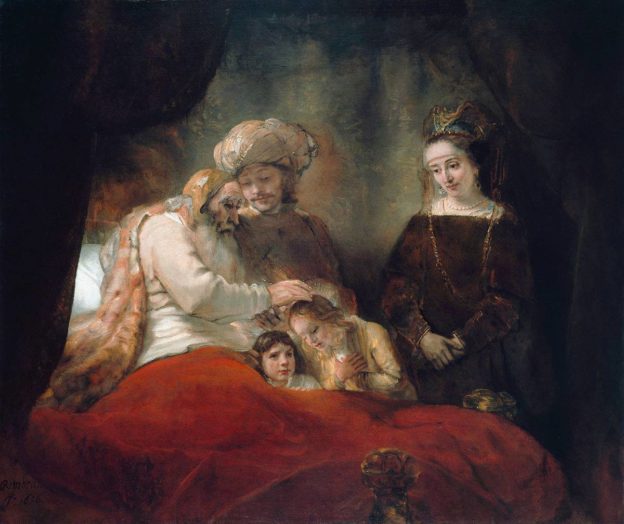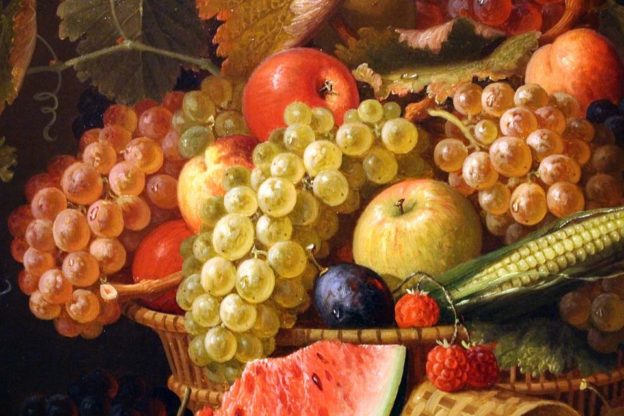Life can seem unfair when working hard and missing out on a deserved reward. In this passage Jesus shows God (as a vineyard owner) giving the same reward to each person regardless of how much they work. How is this fair? Ash Clarkson explores this seeming biblical injustice to reveal a God who knows far more about our nature than we do!
Our passages today: Psalm 80:8-19 and Matthew 20:1-16, Preacher Ash Clarkson, Sunday 24th December.
Introduction
This seems a strange passage for Christmas Eve. What does an eccentric businessman have to do with Christmas?
Christmas is a time of gift giving and the birth of our saviour. It’s not based on our own labour or our possessions; none of which translate to our heavenly reward. We’re receive eternal life regardless of whether we come to Christ early or in the last hour of our life.
The workers in the vineyard receive the same reward and grumble. Everyone receives at minimum what they deserve and some got more. There is no place for jealousy in God’s kingdom. Everything he gives us is out of his generosity and we deserve nothing.
Context of our passage
We come to the parable after the story of the rich young ruler who was told to sell all he had.
When the disciples heard this, they were greatly astonished, saying, “Who then can be saved?” [26] But Jesus looked at them and said, “With man this is impossible, but with God all things are possible.” [27] Then Peter said in reply, “See, we have left everything and followed you. What then will we have?”
Matthew 19:25-27 ESV
Some of the disciples were businessmen who had family businesses. Levi was a tax collector who had been taking some on the side before he came to Jesus.
Jesus said to them, “Truly, I say to you, in the new world, when the Son of Man will sit on his glorious throne, you who have followed me will also sit on twelve thrones, judging the twelve tribes of Israel. [29] And everyone who has left houses or brothers or sisters or father or mother or children or lands, for my name’s sake, will receive a hundredfold and will inherit eternal life. [30] But many who are first will be last, and the last first.
Matthew 19:28-30 ESV
Our passage explained
Labourers for the vineyard
Our passage of the vineyard then takes place. The hours were 6am to 6pm and labourers would be in the square at 6am. A denarius was a fair days wage and enough to feed a family.
The day progresses and the labourers who haven’t found work get picked up by the vineyard owner.
From an early perspective what could they achieve in an hour? Very little pay and very little value add; it’s a slightly odd hiring practice.
An odd arrangement?
There’s also slightly odd payment practice:
“You shall not oppress your neighbor or rob him. The wages of a hired worker shall not remain with you all night until the morning.
Leviticus 19:13 ESV
What he does is in accordance with the law, but the amount is surprising:
And when evening came, the owner of the vineyard said to his foreman, ‘Call the laborers and pay them their wages, beginning with the last, up to the first.’ [9] And when those hired about the eleventh hour came, each of them received a denarius.
Matthew 20:8-9 ESV
“It’s not fair!”
Think about how you would feel in each group. The last group would get the equivalent of a denarius per hour, whereas the last group would get a denarius per day.
The workers grumble, setting out through their eyes: it’s not fair.
saying, ‘These last worked only one hour, and you have made them equal to us who have borne the burden of the day and the scorching heat.’ [13] But he replied to one of them, ‘Friend, I am doing you no wrong. Did you not agree with me for a denarius? [14] Take what belongs to you and go. I choose to give to this last worker as I give to you. [15] Am I not allowed to do what I choose with what belongs to me? Or do you begrudge my generosity?’
Matthew 20:12-15 ESV
The Lord’s response
The grumbles are described as friends. This is an address as someone near and dear to him that he cares about.
The disciples are the first hearers of this parable are the disciples. A vineyard is an image of God’s kingdom (e.g. Psalm 80 and Isaiah 5).
The first to follow Jesus gets eternal life and the ones that come after also get eternal life.
We have all gone astray. We’re labourers who sleep on the job and yet he still gives us what we need.
For he says to Moses, “I will have mercy on whom I have mercy, and I will have compassion on whom I have compassion.” [16] So then it depends not on human will or exertion, but on God, who has mercy.
Romans 9:15-16 ESV
Application
The disciples were starting to think that God owed them something. When Jesus was dying there were two men with him. The thief on the cross got his denarius at the 11th hour.
The disciples were not to judge based on their achievements.
Let each of you look not only to his own interests, but also to the interests of others. [5] Have this mind among yourselves, which is yours in Christ Jesus, [6] who, though he was in the form of God, did not count equality with God a thing to be grasped, [7] but emptied himself, by taking the form of a servant, being born in the likeness of men. [8] And being found in human form, he humbled himself by becoming obedient to the point of death, even death on a cross.
Philippians 2:4-8 ESV
The king of all creation was born in a stable, not a palace. His humble birth made the first of all creation last.
Because of the death on the cross we get mercy. When we work hard and we don’t get the gains we say it’s not fair and assume it’s because of sin and that we’ll get what we deserve in God’s kingdom, but the world is turned upside down.
Position and prestige don’t matter, only grace matters. We might think that our lifetime of service might entitle us to something. This is not to deny that there may be different rewards, but it’s all because of God’s grace.
This is liberating: the world is all about being someone, but the kingdom of God it’s not like this. In God’s kingdom, the currency is mercy and grace.
How do we receive God’s mercy? By receiving the call of the landowner to work in his vineyard. Turn to Jesus and follow Him!
God’s goodness and grace is dying on a cross for us.
Resources
Questions? Please contact us. Inspired? Come and worship with us on Sundays.







